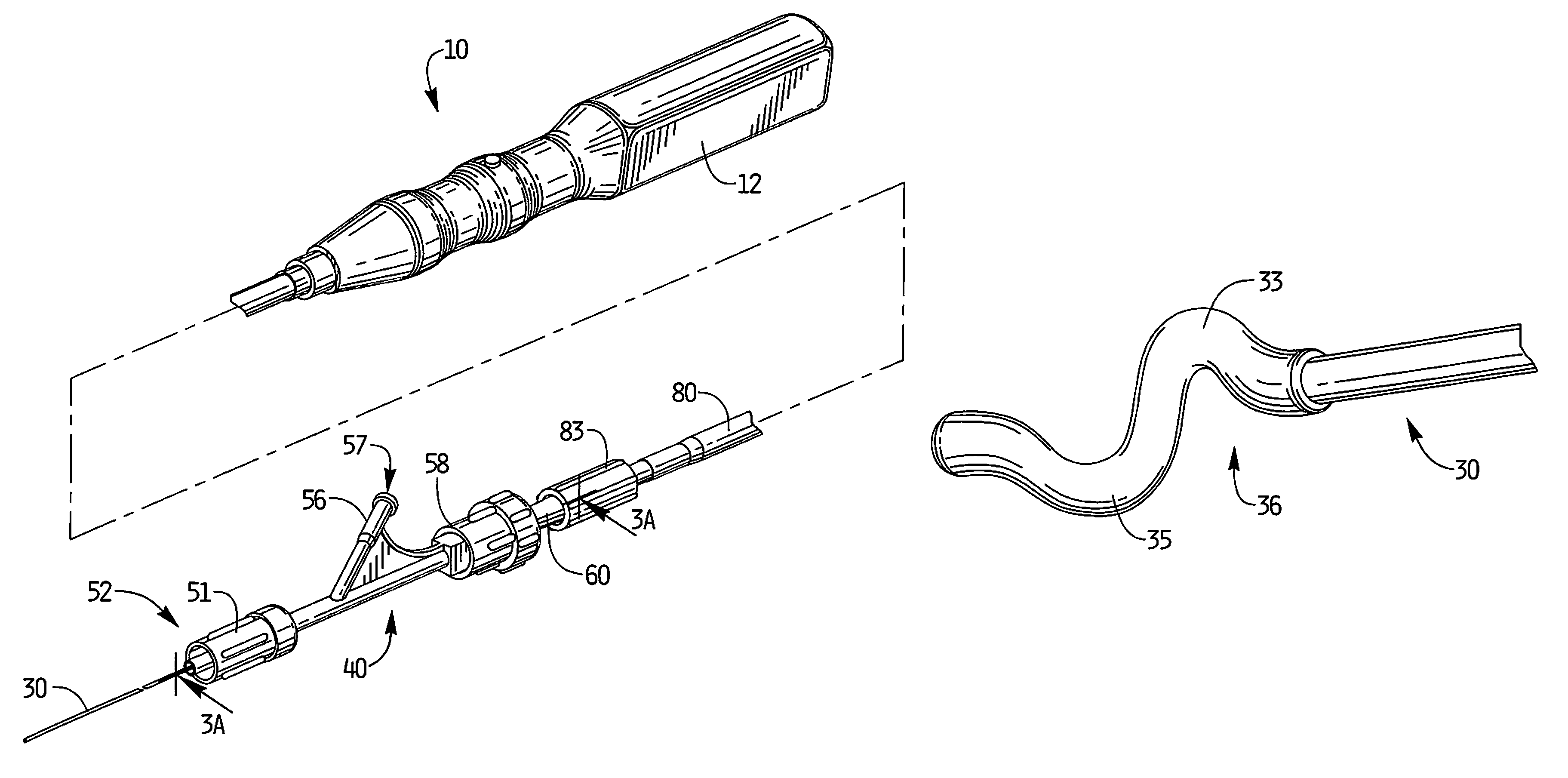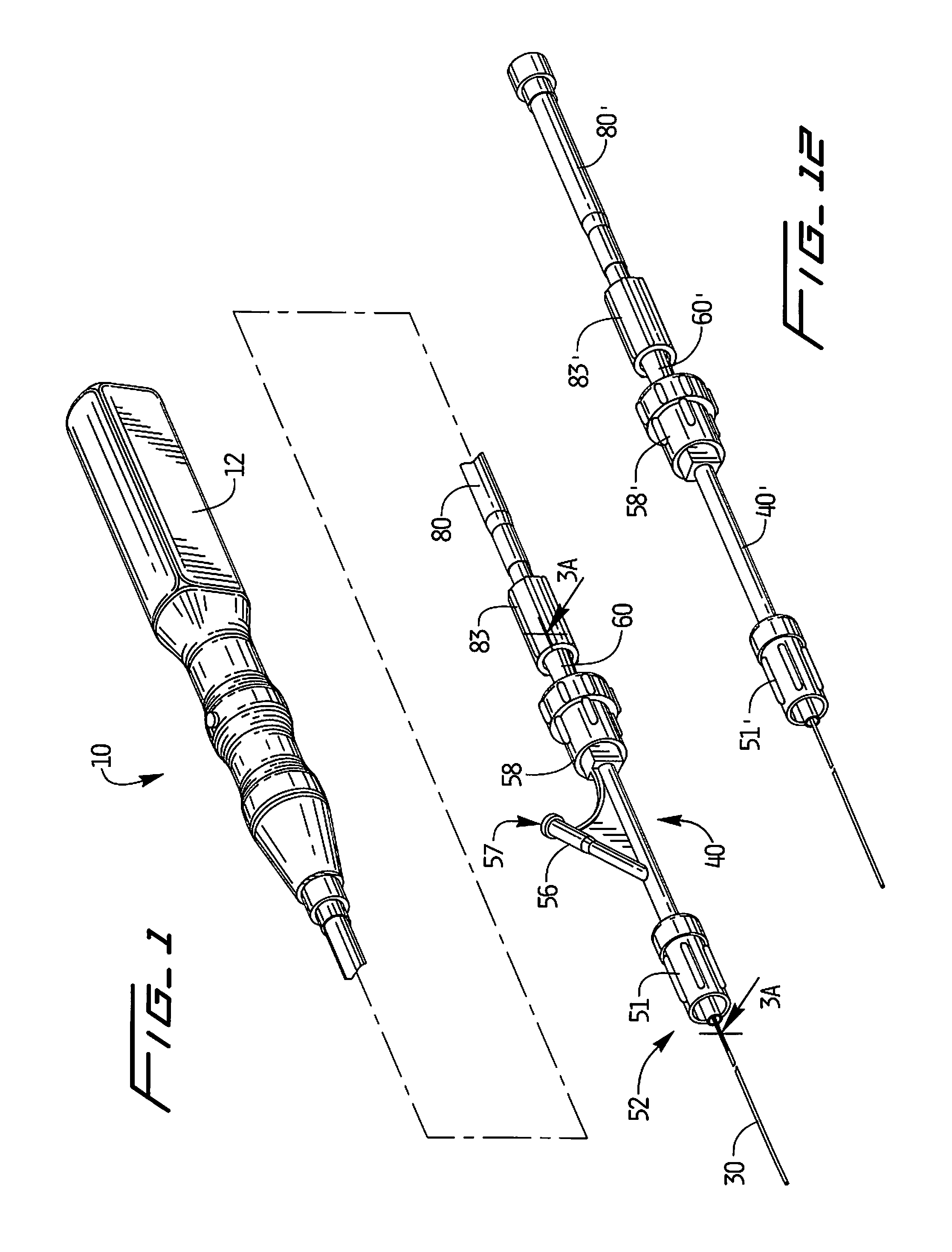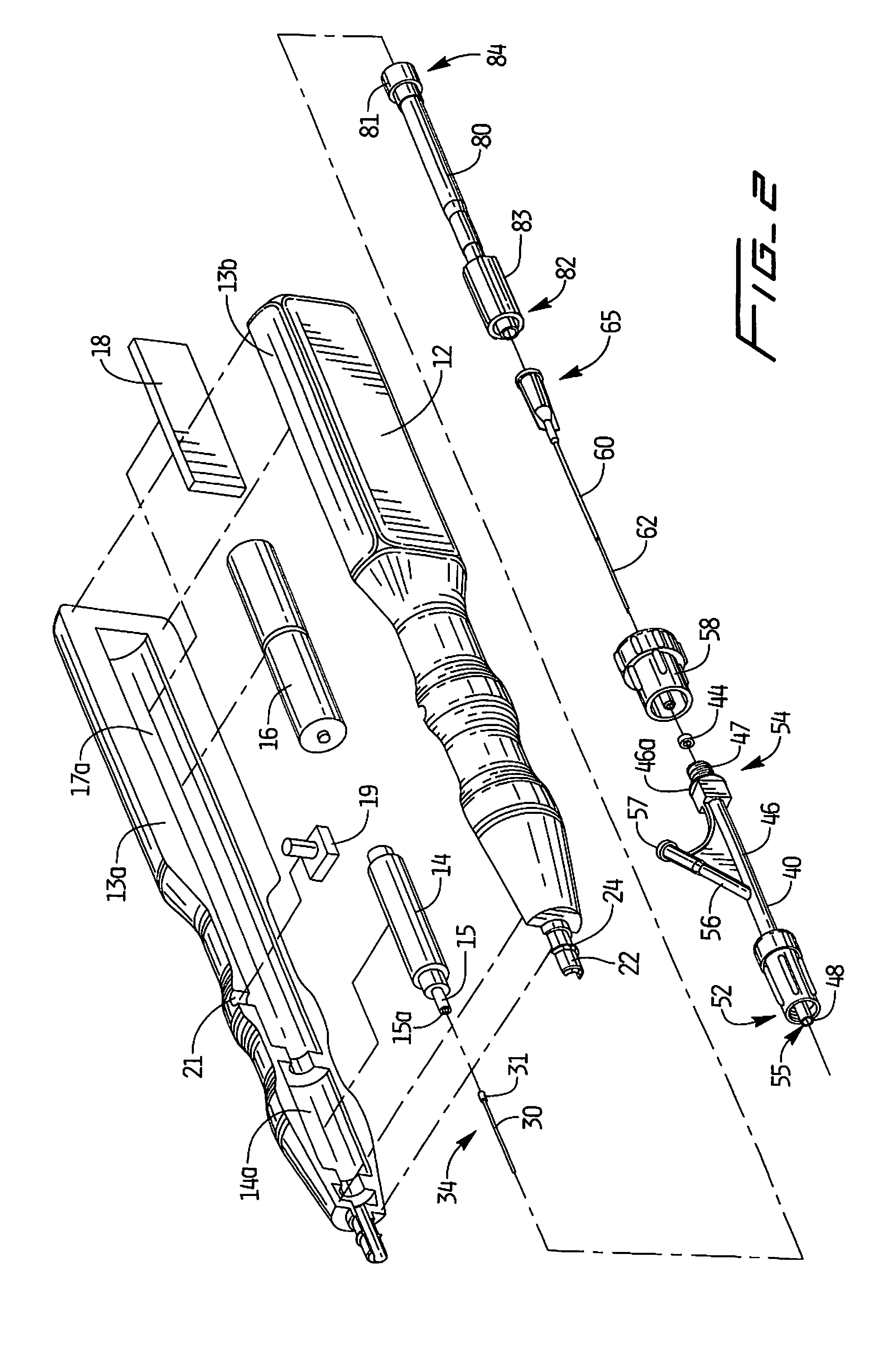Rotational thrombectomy wire
a thrombosis and wire technology, applied in the field of thrombosis wire, can solve the problems of high cost of multiple wire devices, long hospital procedures, and high risk of drug toxicity and bleeding complications
- Summary
- Abstract
- Description
- Claims
- Application Information
AI Technical Summary
Benefits of technology
Problems solved by technology
Method used
Image
Examples
Embodiment Construction
[0052]Referring now in detail to the drawings where like reference numerals identify similar or like components throughout the several views, FIG. 1 illustrates a first embodiment of the thrombectomy apparatus of the present invention.
[0053]The thrombectomy apparatus of FIG. 1 is designated generally by reference numeral 10. With reference to FIGS. 1 and 2, the apparatus includes a motor housing 12, a rotational thrombectomy wire 30, a rotating hemostatic valve (RHV) 40, an introducer sheath 60 and a telescoping tube or tubular connector 80. The RHV 40 is connectable to an introducer catheter 100 discussed below in conjunction with the method of use (see e.g. FIG. 10). The introducer sheath 60 is insertable into the RHV 40 to facilitate insertion of the thrombectomy wire 30 through the RHV 40 and introducer catheter 100.
[0054]The thrombectomy apparatus or assembly 10 disclosed herein provides a rotational thrombectomy wire as a separate unit from a catheter. That is, the thrombectom...
PUM
 Login to View More
Login to View More Abstract
Description
Claims
Application Information
 Login to View More
Login to View More - R&D
- Intellectual Property
- Life Sciences
- Materials
- Tech Scout
- Unparalleled Data Quality
- Higher Quality Content
- 60% Fewer Hallucinations
Browse by: Latest US Patents, China's latest patents, Technical Efficacy Thesaurus, Application Domain, Technology Topic, Popular Technical Reports.
© 2025 PatSnap. All rights reserved.Legal|Privacy policy|Modern Slavery Act Transparency Statement|Sitemap|About US| Contact US: help@patsnap.com



